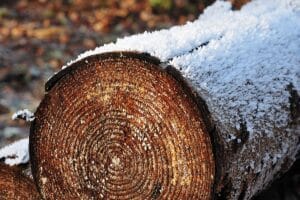Time has come to once again formulate a New Year’s resolution. Maybe you want to get back in shape. Maybe you want to start at quarterback in the NFL (2013 could be your year; the New York Jets may be accepting applicants). Maybe you want to better understand how changes in the tax code could affect your investment portfolio… frankly, getting back in shape would be easier. Regardless, we are subject to legislative jousting in the looming “fiscal cliff” faced by U.S. investors and taxpayers. For those of us interested in timberlands and timber REITs, how might changes in the tax code affect timber REIT investments?
How are Dividends Taxed in the U.S.?
In December 2010, President Obama signed into law a two-year extension of many provisions enacted by President Bush in 2002 and 2003 (often termed the “Bush-era tax cuts”). The extension retained the current 15% maximum tax rate of qualified dividends for most taxpayers and 0% for those in the 10 to 15% ordinary income tax brackets. “Qualifying dividends” include dividends received by shareholders (1) of qualified corporations and (2) who held the underlying stock for at least 61 days within an IRS-defined 121-day period relative to the ex-dividend dates of the firms. Importantly for us, this includes dividends paid by real estate investment trusts (REITs).
If the dividend tax rate expires as scheduled on December 31, 2012, shareholders would pay taxes on dividend income at their ordinary income tax rate. Currently, for example, unmarried individuals who earn more than $85,650 and joint-filing married couples who earn more than $142,700 pay basically 35%, on the margin, in Federal taxes. However, the issue varies with timber REITs because most dividends qualify as long-term capital gains. Currently, the qualified dividends and long-term capital gains are taxed at 15%. If the current extension expires, capital gains would be taxed at the pre-2003 rates of 20% (still lower than the marginal ordinary income rate paid by most investors).
Implications for Timber REIT Shareholders
Consider an example that quantifies the implications of changing tax rates on timber REIT shareholders. This example also provides context relative to shareholders of non-timber REITS or other dividend-paying stocks. We compare the dividend yields of the four public timber REITs – Potlatch (PCH); Plum Creek (PCL); Rayonier (RYN); and Weyerhaeuser (WY) – under different assumed tax scenarios:
- No Taxes: our “fantasy” scenario.
- Current Post Tax: reflects the present code that taxes dividends at 15%.
- Post “Cliff”: represents a return to pre-2003 rates, which treats timber REIT dividends as (mostly) capital gains and taxes them at the pre-2003 capital gains rate of 20%.
- Non-Timber REIT: captures a return to taxing dividends at the marginal ordinary income tax rate. Our scenario focuses on shareholders in the 35% ordinary income tax bracket.
Table 1 summarizes how the impact on dividend yields, while negative in all scenarios, slices results to a greater degree for non-timber REITs.
Table 1

What would you need to receive in dividends from your timber REIT investments to generate the same dividend yield “pre” versus “post” change in the tax code, if it occurs? Table 2 summarizes this result relative to non-timber REIT shares.
Table 2

While dividend yields do not tell the whole story, they provide a starting point for comparing alternate investments. At a minimum, stocks that emphasize dividends compete with risk-free rates offered by U.S. Treasuries (currently 1.63% pre-tax for 10 years). Other factors to consider include:
- Total expected returns: investors reasonably expect a risk “premium” for holding stocks over bonds, and this premium supports expectations of total returns which sum dividends and appreciation.
- Effective tax rates: actual tax rates vary significantly across investors. Institutions such as mutual funds and pension funds hold approximately two-thirds of public equities in the U.S. And many individuals attracted to dividend-paying stocks pay lower ordinary income tax rates.
Ultimately, changes in dividends or net cash received affect valuations as investors compare after-tax yields and expected returns across asset classes. The bottom line: timber REIT equities retain a tax-advantaged status in a post-tax cliff environment.
This content may not be used or reproduced in any manner whatsoever, in part or in whole, without written permission of LANDTHINK. Use of this content without permission is a violation of federal copyright law. The articles, posts, comments, opinions and information provided by LANDTHINK are for informational and research purposes only and DOES NOT substitute or coincide with the advice of an attorney, accountant, real estate broker or any other licensed real estate professional. LANDTHINK strongly advises visitors and readers to seek their own professional guidance and advice related to buying, investing in or selling real estate.










Brooks, that’s huge that timber reits receive capital gains treatment. When I read that, I came straight here so if you answered this question, I’ll go back through the article.
Why has Congress allowed this? Thanks in advance.